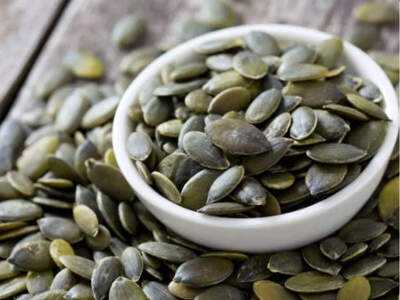Move over kale and avocados — there’s a vibrant orange vegetable that nutritionists say deserves a permanent spot in your kitchen. Once reserved for pies and Halloween decor, pumpkin is now being hailed as one of the most nutrient-dense, affordable, and versatile foods for overall health. Packed with vitamins, minerals, antioxidants, and fiber, it’s a nutritional powerhouse that supports everything from immunity to heart health.
A treasure trove of nutrients
According to Healthline, a single cup of cooked pumpkin (about 245 grams) provides just 49 calories but covers up to 78% of the recommended daily intake of Vitamin A, 13% of Vitamin C, and 25% of copper. It’s also rich in beta-carotene, the compound that gives pumpkin its signature color and helps maintain good vision, glowing skin, and a robust immune system. Studies have linked diets high in carotenoids like those found in pumpkin to lower risks of chronic illnesses including heart disease and certain cancers.
The secret behind its disease-fighting powers
As Daily Mail reported, pumpkins are loaded with antioxidants such as alpha- and beta-carotene, lutein, and zeaxanthin, which neutralize harmful free radicals in the body. These compounds not only lower inflammation but may also slow down aging and protect against cancers. Vitamin C, another key nutrient in pumpkin, boosts collagen production — a vital factor for youthful, healthy skin.
A natural aid for heart and gut health
Nutrition experts point out that pumpkin’s high potassium and fiber content make it a heart-friendly food. Potassium helps balance sodium levels, while fiber aids digestion and promotes satiety, making pumpkin an excellent addition for those aiming to lose weight. One 100-gram serving of cooked pumpkin provides over 2 grams of fiber, helping stabilize blood sugar and support gut health.
Don’t skip the seeds
If the pumpkin’s flesh is the body, its seeds are the heartbeat. Daily Mail highlights that pumpkin seeds are exceptionally rich in magnesium, zinc, and selenium — essential minerals for immunity, hormone balance, and muscle health. Magnesium, in particular, helps relax muscles, improve sleep, and regulate mood. Nutritionists recommend sprinkling roasted or soaked pumpkin seeds over salads, soups, or yogurt for an easy nutrient boost.

The surprising sleep connection
A lesser-known fact? Pumpkin seeds may improve sleep quality. They contain tryptophan, an amino acid the body converts into serotonin and melatonin — hormones that regulate mood and sleep cycles. Combined with magnesium, they create a natural, bedtime-friendly snack that can promote deeper rest.
Affordable and easy to add to meals
Beyond its impressive nutrition profile, pumpkin’s biggest advantage may be its accessibility. It’s far cheaper than dietary supplements yet delivers a similar nutritional punch. Its natural sweetness and creamy texture make it perfect for soups, curries, smoothies, or even baking.
From weight management to immune support, pumpkin offers a wide spectrum of health benefits without breaking the bank. Whether you roast it, blend it, or snack on its seeds, this underrated winter squash could quietly become the healthiest habit on your plate.
A treasure trove of nutrients
According to Healthline, a single cup of cooked pumpkin (about 245 grams) provides just 49 calories but covers up to 78% of the recommended daily intake of Vitamin A, 13% of Vitamin C, and 25% of copper. It’s also rich in beta-carotene, the compound that gives pumpkin its signature color and helps maintain good vision, glowing skin, and a robust immune system. Studies have linked diets high in carotenoids like those found in pumpkin to lower risks of chronic illnesses including heart disease and certain cancers.
The secret behind its disease-fighting powers
As Daily Mail reported, pumpkins are loaded with antioxidants such as alpha- and beta-carotene, lutein, and zeaxanthin, which neutralize harmful free radicals in the body. These compounds not only lower inflammation but may also slow down aging and protect against cancers. Vitamin C, another key nutrient in pumpkin, boosts collagen production — a vital factor for youthful, healthy skin.
A natural aid for heart and gut health
Nutrition experts point out that pumpkin’s high potassium and fiber content make it a heart-friendly food. Potassium helps balance sodium levels, while fiber aids digestion and promotes satiety, making pumpkin an excellent addition for those aiming to lose weight. One 100-gram serving of cooked pumpkin provides over 2 grams of fiber, helping stabilize blood sugar and support gut health.
Don’t skip the seeds
If the pumpkin’s flesh is the body, its seeds are the heartbeat. Daily Mail highlights that pumpkin seeds are exceptionally rich in magnesium, zinc, and selenium — essential minerals for immunity, hormone balance, and muscle health. Magnesium, in particular, helps relax muscles, improve sleep, and regulate mood. Nutritionists recommend sprinkling roasted or soaked pumpkin seeds over salads, soups, or yogurt for an easy nutrient boost.
The surprising sleep connection
A lesser-known fact? Pumpkin seeds may improve sleep quality. They contain tryptophan, an amino acid the body converts into serotonin and melatonin — hormones that regulate mood and sleep cycles. Combined with magnesium, they create a natural, bedtime-friendly snack that can promote deeper rest.
Affordable and easy to add to meals
Beyond its impressive nutrition profile, pumpkin’s biggest advantage may be its accessibility. It’s far cheaper than dietary supplements yet delivers a similar nutritional punch. Its natural sweetness and creamy texture make it perfect for soups, curries, smoothies, or even baking.
From weight management to immune support, pumpkin offers a wide spectrum of health benefits without breaking the bank. Whether you roast it, blend it, or snack on its seeds, this underrated winter squash could quietly become the healthiest habit on your plate.
You may also like

Donald Trump vs the Filibuster: What is it and can POTUS scrap it?

Dunelm shoppers love clever duvet that makes the bed 'in seconds'

Apollo doctor advices: 3 tips to maximise Vitamin D absorption in the body for stronger bones and immunity

Erika Kirk says she sees 'similarities' between her late husband and JD Vance: 'No one can replace Charlie but…'

Cyclone Montha impact: Andhra CM asks officials to protect water-logged crops






